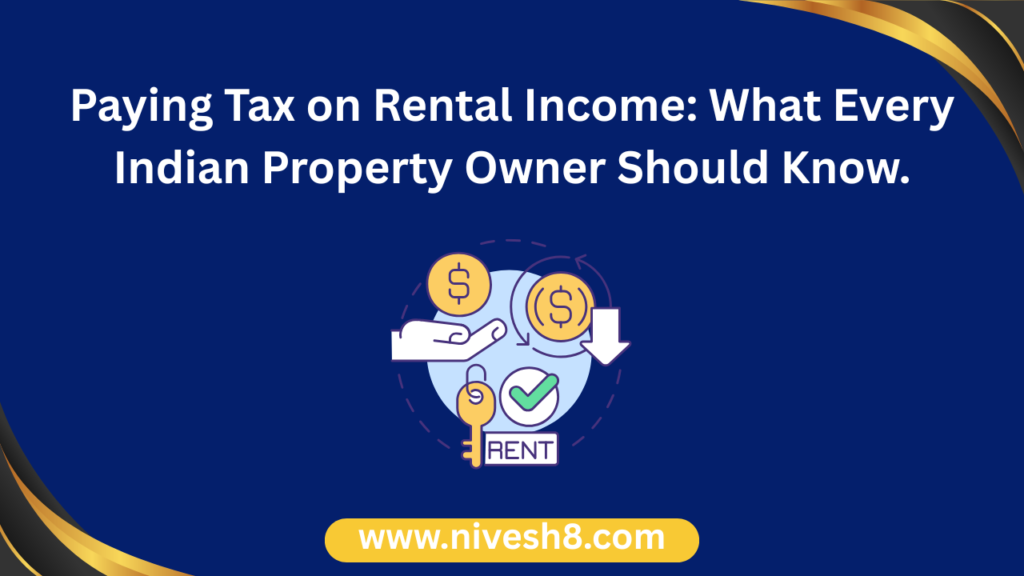You’re not alone if you make money renting a house, store, or flat. One of the most often occurring sources of extra money in India is rental income. When it comes to paying tax on rental income, many people are unsure of the regulations. Let’s disentangle the uncertainty and grasp its straightforward nature.
Is Taxable Rental Income?
Under the head “Income from House Property” on your Income Tax Return (ITR), rental income is indeed fully taxable in India. Whether from one property or another, you have to report rent you are receiving when you file your taxes.
How Much Tax You Must Pay?
Your total income—including rent, pay, company profits, and other income—determines the tax you pay. Your tax rate falls from your income tax slab. Therefore, there is no set rate specifically for rent; rather, it depends on your whole annual income.
Calculating Rental Income for Taxes:
Here’s a basic, step-by-step approach to simplify matters:
- Determine Gross Annual Value (GAV): The whole rent paid in the year is here.
For instance: 20,000 a month times 12 months equals 2,40,000. - Sort Municipal Taxes Paid: You can subtract it if you paid local authorities property taxes.
- Standard Deductibility: Thirty percent: Even if you did not really spend anything, you automatically get a 30% deduction for maintenance and repair expenses.
- Interest on Home Loans, Should Any Exist: Section 24(b) lets you claim the interest paid on a loan taken out to purchase the rented property.
For instance, yearly rent is ₹2,40,000.
Municipal tax is ₹10,000.
Home loan interest is ₹70,000.
Final amount to be included in your total income is ₹2,40,000 – ₹10,000 – 30% of ₹2,30,000.
Paying Taxes on Multiple Property Rental Income
Should you own more than one property, even if one of your homes is empty, it could still be taxed. Just one property can be declared as self-occupied; all others are regarded as “let-out” and taxed accordingly.
When paying tax on rental income from several homes or apartments, this rule is extremely crucial.
TDS for Rental Income
Should the monthly rent be more than ₹50,000, your tenant must subtract TDS (Tax Deducted at Source) at 5% and forward it to the government. The tenant will send you a Form 16C outlining this deduction.
Use Form 26AS to ensure your ITR shows this TDS.
How Should Taxes Be Paid?
- Pay the tax when you submit your Income Tax Return before July 31st.
- Using advance tax should your overall tax obligation be more than ₹10,000.
- With net banking, UPI, or payment gateways via incometrix.gov.in
Deductions You Could Use to Save
Don’t overlook these deductions when paying tax on rental income.
- Section 24(a): 30% ordinary deduction
- Section 24(b): Housing loan interest
- Taxes paid municipal and property-wise during a year
Your taxable income can be much lowered by these deductions.
In Conclusion
Make sure you are aware of the regulations for paying tax on rental income if you are earning rent. It’s about smart planning, not only about keeping legal. Correct deductions will help you maximize your rental income and lower your tax load.
Don’t wait till the very last minute, then. Determine your rental income, apply the available deductions, and timely file your taxes!



